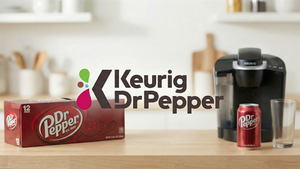Palm Beach, FL – November 14, 2023 – FinancialNewsMedia.com News Commentary – Oncology drugs include wide range of medications such as targeted therapies, chemotherapy agents, immunotherapies, and hormone therapies to treat cancer. The market growth is attributed to various factors such as the rising prevalence of different type of cancer, increasing new drug launches and product approvals, and growing research activities by pharma companies in this field. According to data published by the American Cancer Society in January 2023, there will be around 1,958,310 cancer patients in the U.S. alone by the end of 2023, a 28.0% increase from 2010. The oncology cancer drugs are primarily used to lower the total number of cancer cells in the body, shrink the tumor size, and reduce the symptoms. According to a report from Fortune business Insights projected that the global oncology drugs market size was valued at USD 184.95 billion in 2022 and is projected to grow from USD 205.52 billion in 2023 to USD 484.32 billion by 2030, exhibiting a CAGR of 13.0% during the forecast period. The report said that the: “The Growing focus on R&D to increase adoption of advanced drug therapies to drive the market growth. The treatment of cancer patients involves efforts to cure the disease, prolong survival, and improve their quality of life. Immune cells play an essential role in tumor progression. Therefore, stimulating immune reactions to tumors is an attractive therapeutic and preventive strategy. Top market players are, hence, investing in the research and development of. immunotherapy to treat various cancers.” Active Biotech Companies active today in markets include: Defence Therapeutics Inc. (OTCPK: DTCFF) (CSE: DTC), Bristol Myers Squibb (NYSE: BMY), Novartis AG (NYSE: NVS), Merck (NYSE: MRK), Roche (OTCQX: RHHBY).
Fortune business Insights added that the: “Increasing prevalence of cancer (will) augment the oncology drugs market growth… The rate of cancer incidence is increasing globally. Various factors responsible for this growth are urbanization, changing diet patterns, tobacco smoking, and extended post-reproductive lifespan. According to the GLOBOCAN 2022, cancer is a growing burden. Around 19.3 million new cancer cases occurred in 2022 worldwide. Furthermore, the cancer burden is projected to rise by 47% (around 28.4 million cases) in 2040. Therefore, the growing occurrence of cancer is expected to foster the global oncology cancer drugs market growth over the forecast period. Furthermore, growing awareness of cancer among the population is expected to favor the global market growth in the coming years.”
Defence Therapeutics Inc. (OTCPK: DTCFF) (CSE: DTC): Defence’S SUCCESSFUL SUBMISSION OF AN Investigational New Drug (IND) Application for AccuTOX® as an injectable ANTICANCER TREATMENT for solid tumors – Defence Therapeutics Inc. (“Defence” or the “Company”), one of the leading Canadian biotechnology companies working in the field of immune-oncology is pleased to announce that it has successfully submitted on November 9, 2023 an Investigational New Drug (IND) application to the U.S. Food and Drug Administration (FDA) for its ACCUM-002TM Dimer CDCA-SV40 commonly named “AccuTOX®”, an injectable anticancer molecule, for the treatment of solid cancer tumors.
AccuTOX® is a derivative of the initial Accum® molecule, which has been reported to target cancer on multiple fronts. AccuTOX® disrupts endosomal membranes resulting in impaired intracellular transport mechanisms. AccuTOX® also triggers genotoxic effects, blocks DNA repair mechanisms normally used by cancer cells to repair its damaged genome and induces a form of immunogenic cell death capable of turning “ON” the immune system. When previously tested in preclinical animal models under the supervision of Dr. Moutih Rafei, AccuTOX® impaired tumor growth resulting in “70-100% survival” of animals with solid T-cell lymphoma, melanoma or breast cancer.
The IND application includes data, reports and overview summaries of numerous studies to evaluate the pharmacology, pharmacokinetics, and toxicology of AccuTOX® both in vitro and in vivo, including cancer models. In addition, the application describes the manufacture of the drug substance and drug product to be used in human clinical trials. The main purpose of the IND is to share with the FDA the extensive non-clinical data supporting an acceptable safety profile when AccuTOX® will be first administered to humans. The FDA will review the application and determine the acceptability of the data before Defence begins the Phase I clinical trial, which could be as early as Q1-Q2 2024.
“We are thrilled and excited that Defence has achieved a successful submission on its first IND, which represents an important milestone towards advancing AccuTOX® into the clinic. We look forward to work with clinical investigators at City of Hope to study this important and novel candidate for the treatment of melanoma and potentially other solid tumors,” said Sébastien Plouffe, President & CEO of Defence Therapeutics. “With the continued difficulties encountered in the oncology clinic, we believe that the therapeutic use of AccuTOX® provides a novel and powerful approach to combat cancer,” he added.
The primary objective of this upcoming Phase I clinical trial, when approved, is to identify the best therapeutic dosing range that would allow clinicians to co-administer the AccuTOX® compound with Opdulag®, a BMS product containing both anti-LAG3 and anti-PD-1. Several other secondary parameters including therapeutic efficacy will be monitored in treated patients in preparation for a Phase IIa trial on a basket of tumors. CONTINUED… Read this full Press Releases for Defence Therapeutics at: https://defencetherapeutics.com/news-releases/
In other active biotech developments in the markets this week:
Bristol Myers Squibb (NYSE: BMY) recently announced that the U.S. Food and Drug Administration (FDA) has accepted the supplemental Biologics License Application (sBLA) for Breyanzi (lisocabtagene maraleucel) to expand its current indication to include the treatment of adult patients with relapsed or refractory chronic lymphocytic leukemia (CLL) or small lymphocytic lymphoma (SLL) who received a prior Bruton tyrosine kinase inhibitor (BTKi) and B-cell lymphoma 2 inhibitor (BCL2i). The FDA has granted the application Priority Review and assigned a Prescription Drug User Fee Act (PDUFA) goal date of March 14, 2024. Priority Review designation underscores the high unmet need and the significant advancement Breyanzi may offer this patient population for which there is no standard of care and limited treatment options.
“Currently, there is no standard of care for people living with relapsed or refractory CLL or SLL after treatment with BTKi- and BCL2i-based regimens, leaving a critical unmet need for a treatment option that provides deep and lasting responses,” said Anne Kerber, senior vice president and head, Late Clinical Development, Hematology, Oncology, Cell Therapy (HOCT), Bristol Myers Squibb. “This FDA acceptance brings us one step closer to offering these patients, for the first time, a personalized, T-cell based treatment option. We’re proud to further our commitment to bring the potential of CAR T cell therapy to more patients, building on Breyanzi’s foundation as a differentiated treatment option that has shown clinical benefit in the broadest array of B-cell malignancies.”
Novartis AG (NYSE: NVS) a global leader in immuno-dermatology and rheumatology, recently announced that the US Food and Drug Administration (FDA) has approved Cosentyx® (secukinumab) to treat moderate to severe hidradenitis suppurativa (HS) in adults. Cosentyx is the only FDA-approved fully human biologic that directly inhibits interleukin-17A (IL-17A), a cytokine believed to be involved in the inflammation of HS.
HS is a chronic, systemic and often painful skin disease that causes recurring boil-like lumps that may burst into open wounds and cause irreversible scarring, often in the most intimate parts of the body. It may take people living with HS an average of up to 10 years to get a correct diagnosis, which can result in disease progression and significantly impact their quality of life. Until now, there has been only one biologic approved to treat HS.
Merck (NYSE: MRK), known as MSD outside of the United States and Canada, recently announced the European Medicines Agency’s Committee for Medicinal Products for Human Use (CHMP) adopted a positive opinion recommending approval of KEYTRUDA, Merck’s anti-PD-1 therapy, in combination with gemcitabine and cisplatin, for the first-line treatment of adult patients with locally advanced unresectable or metastatic biliary tract carcinoma.
“Patients diagnosed with locally advanced unresectable or metastatic biliary tract cancer face a challenging disease with poor survival outcomes, underscoring the need for new treatment options that may help extend their lives,” said Dr. Marjorie Green, senior vice president and head of late-stage oncology, global clinical development, Merck Research Laboratories. “The CHMP’s positive opinion brings us one step closer to providing a new immunotherapy regimen, which has shown an overall survival benefit compared to chemotherapy alone, to these patients in the European Union.”
Roche (OTCQX: RHHBY) recently announced that its Elecsys® Neurofilament Light Chain (NfL) test for Multiple Sclerosis (MS) received Breakthrough Device Designation from the U.S. Food and Drug Administration (FDA). The Elecsys NfL test is intended to be used as an aid in detection of disease activity in adults (18-55 years old) with Relapsing-Remitting Multiple Sclerosis (RRMS) or Secondary Progressive Multiple Sclerosis (SPMS), providing critical insights for disease management.
“Around 2.8 million people are estimated to live with Multiple Sclerosis1. After diagnosis, many face challenges with managing their disease due to significant gaps in access to testing. This can lead to missed opportunities to detect disease progression in support of treatment optimisation,” said Matt Sause, CEO of Roche Diagnostics. “We are excited about the potential Elecsys NfL has to improve outcomes for MS patients by offering a minimally invasive blood draw that can deliver rapid results.”
DISCLAIMER: FN Media Group LLC (FNM), which owns and operates Financialnewsmedia.com and MarketNewsUpdates.com, is a third- party publisher and news dissemination service provider, which disseminates electronic information through multiple online media channels. FNM is NOT affiliated in any manner with any company mentioned herein. FNM and its affiliated companies are a news dissemination solutions provider and are NOT a registered broker/dealer/analyst/adviser, holds no investment licenses and may NOT sell, offer to sell or offer to buy any security. FNM’s market updates, news alerts and corporate profiles are NOT a solicitation or recommendation to buy, sell or hold securities. The material in this release is intended to be strictly informational and is NEVER to be construed or interpreted as research material. All readers are strongly urged to perform research and due diligence on their own and consult a licensed financial professional before considering any level of investing in stocks. All material included herein is republished content and details which were previously disseminated by the companies mentioned in this release. FNM is not liable for any investment decisions by its readers or subscribers. Investors are cautioned that they may lose all or a portion of their investment when investing in stocks. For current services performed FNM was compensated twenty six hundred dollars for news coverage of current press release issued by Defence Therapeutics Inc.by a non-affiliated third party. FNM HOLDS NO SHARES OF ANY COMPANY NAMED IN THIS RELEASE.
This release contains “forward-looking statements” within the meaning of Section 27A of the Securities Act of 1933, as amended, and Section 21E the Securities Exchange Act of 1934, as amended and such forward-looking statements are made pursuant to the safe harbor provisions of the Private Securities Litigation Reform Act of 1995. “Forward-looking statements” describe future expectations, plans, results, or strategies and are generally preceded by words such as “may”, “future”, “plan” or “planned”, “will” or “should”, “expected,” “anticipates”, “draft”, “eventually” or “projected”. You are cautioned that such statements are subject to a multitude of risks and uncertainties that could cause future circumstances, events, or results to differ materially from those projected in the forward-looking statements, including the risks that actual results may differ materially from those projected in the forward-looking statements as a result of various factors, and other risks identified in a company’s annual report on Form 10-K or 10-KSB and other filings made by such company with the Securities and Exchange Commission. You should consider these factors in evaluating the forward-looking statements included herein, and not place undue reliance on such statements. The forward-looking statements in this release are made as of the date hereof and FNM undertakes no obligation to update such statements.
Contact Information:
Media Contact email: editor@financialnewsmedia.com – +1(561)325-8757
SOURCE Financialnewsmedia.com
The post Global Oncology Drugs Market Size Projected to Reach $484 Billion by 2030 appeared first on Financial News Media.





